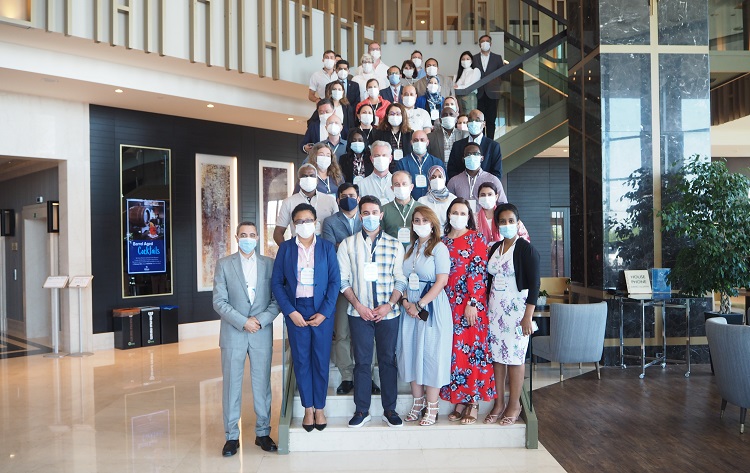
8 June, Cairo – During a first-of-its-kind event, 27 participants from the WHO Regional Offices for the Eastern Mediterranean, Africa and Europe met in Istanbul to participate in the Leadership in Health Emergencies Phase 2 workshop between 17 and 20 May 2022. The workshop aims to build a cadre of health emergency leaders that can lead WHO’s emergency operations and effectively support health ministries and partners.
"Strengthening the capacities of health emergency leaders within WHO is critical to provide appropriate support to countries to better manage emergencies. Furthermore, reinforcing capacities of leaders well positioned within national health emergency architectures is essential to advise decision-makers at the national level on the response priorities and measures to take to manage new outbreaks or potential pandemics,’’ said Dr Soce Ibrahima Fall, WHO Assistant Director-General.
Participants are either acting as, or have the potential to be, incident managers, Health Cluster coordinators and team leads. These are all essential roles in which WHO must build capacity as an organization. WHO is both a technical and operational organization – building leadership and emergency management skills is vital to ensuring our operations effectively support ministries and partners. The soft skills that are being developed in the Leadership in Health Emergencies training are essential to delivering an effective response.
In addition to classroom sessions and group work, participants completed a simulation exercise (SIMEX) during the workshop, providing them with the opportunity to practise and reflect on leadership skills using a real-life scenario. The exercise, which focused on teamwork, situation assessment, decision-making, communication, negotiation and feedback.
“The world faces an unprecedented confluence of emergencies: response and recovery from COVID-19, compounded by relentless global changes in climate, land, and biodiversity; conflict in the heart of Europe with massive displacement and feared food insecurity spillovers of global dimensions; protracted frozen conflicts in Afghanistan, Ethopia and Yemen, to name a few. This underscores the need for a new vision for global preparedness truly ‘without borders’. Workshops like this one are only one of the multifaceted, collaborative efforts partnered in by our Türkiye-funded WHO European Region Centre for Preparedness for Humanitarian and Health Emergencies in Istanbul, targeting the improved practice of preparedness across sectors, within and between Member States,” said Dr Irshad Shaikh, Acting Head of the WHO European Region Centre for Preparedness for Humanitarian and Health Emergencies.
Although participants had completed around 40 hours of training together up to this point, this was the first time that they have physically been together as a group to strengthen the bonds that they have been building across WHO regions.
“The feedback from participants was overwhelmingly positive, indicating that this well-designed training addresses an important area of staff skills development,” said Dr Rick Brennan, WHO Regional Emergency Director for the Eastern Mediterranean. “The training will be an important pillar of the Regional Office staff development strategy, helping us to develop the health emergency leaders of tomorrow.”
The workshop was jointly hosted by the WHO European Centre for Preparedness for Humanitarian and Health Emergencies, WHO Regional Office for the Eastern Mediterranean, and WHO Health Emergencies Programme in Geneva.








